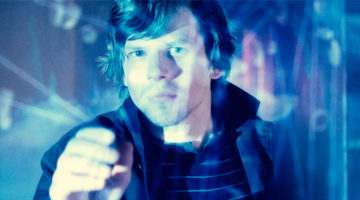Interview: Andrew Scott and Ben Schnetzer discuss Pride and joy
The guys from Pride, Andrew Scott and Ben Schnetzer, happen to be really great guys and clearly took a real sense of joy from the work that they did.
Andrew Scott is perhaps best known from Sherlock, in which he portrayed Jim Moriarty, the antagonist to Benedict Cumberbatch’s detective, and who plays Gethen in the film, “I feel incredibly proud. In fact, I don’t think that I’ve ever felt more proud, to be involved in a story”.
Ben Schnetzer, who starred in The Book Thief alongside Canadian actress Sophie Nelisse, also appeared in The Riot Club, and here, played Mark Ashton, the sort-of leader of the group Lesbians and Gays Support the Miners, and was wearing a graphic t-shirt featuring the group, along with a pin, added “It’s strange, I feel perverse sometimes, when people are like ‘oh, I cried’, and I’m like ‘great!’, but I’m glad, you know, there’s a real universality to it”.
Scott and Schnetzer then both did something very interesting. Without prompting, they both get into how people communicate, and furthermore, look inwards from the film as an inspiration for really connecting with others. “With social media and everything now, people are very isolated from each other, and, you know, when you have to Tweet something, it’s usually, for the most part, people Tweet something by themselves, (laughs), you know, rather than something about other people”. Scott then states, “You actually get more out of life, you know, to go: ‘I am feeling miserable and downtrodden, I am being bullied, but what can I do for somebody else?’”
Schnetzer picked up upon this theme by kowtowing to his older co-star: “Andrew said something interesting yesterday, you know, he said ‘this is the generation that has coined the term ‘selfie’, but you know, hopefully this film will encourage people to you know…” “Be selfless?”, “Exactly, and look out a little more, and, you know, think about the person across from you”.
Scott then took the lead, pausing to stretch out each word in a fascinating summation: “You know, (this) is what is so heroic about these people. In 1984, gay people in the press, and in England were absolutely vilified. There was willful hatred towards them, (and) they were called the slime of society, without any apology (voice rising), It was totally acceptable to call gay people perverts”. Scott crusaded strongly against what was once acceptable behaviour, but he did so in such a measured way, and was able to keep any sign of outward anger just below the surface. Scott truly captured the movement by concluding “the bravery of going ‘you know what? They may not accept our money, but they just need us, and we’ll give it to them’, to me, is just extraordinary, it’s extraordinary”.
Schenetzer took solace in the failure of the strike in Pride, noting unapologetically that, “it wasn’t a success, you know, they lost, but at the same time, what they achieved was greater than the circumstance which was its catalyst”.
Scott said, somewhat incredulously, of the reaction to the film in Toronto, “They stood for ten minutes. They stood for ten minutes! It was absolutely extraordinary. To have that reaction here, I mean, it is totally overwhelming. I mean, they stood at the Press Screening. Crikey!”
He went on to mention one of the main enticing aspects of the film, “I think someone said they felt fed, by something they didn’t even know they were hungry for, and I think…it’s certainly how I felt. Schnetzer jumped on and said “That is something that attracted me to the project, I mean, it is relevant today, I hope that it resonates with people, and, you know, I think that it’s exciting that a lot of the central characters in the film are young people, you know, and it’s about youth accomplishing something, uh, greater than themselves”.
Adds Scott, in reference to his character, Gethen, It’s not about sexuality. It’s about somebody who is struggling with his nationality, and his relationship with his family, and out there (rolling off the tongue), the sort of tributary and insidious effects of prejudice”.
Schnetzer agreed that Pride was decidedly non-preachy, “You don’t feel like ‘here’s an agenda, let’s beat you over the head with it for two hours…it’s really just, here’s a story about people, and you take from it what you will…as a storyteller, leave an audience wanting more. Don’t overstay your welcome”.



